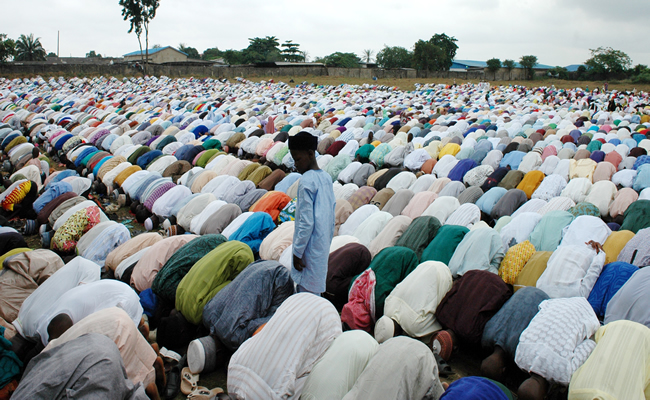
‘Worship the Almighty and associate nothing with Him, and to parents do good… (Quran 4: 86)
One response might be that most of the time, we read the Quran without actually ‘reading’ it. The Muslim who read the Quran without knowledge of what he reads is like, in the Quranic parlance, the donkey which carries loads and loads of burden. Brother! Of what benefit are the former to the latter? Besides that, not a few Muslims treat the Quran the way we treat panadol or paracetamol? We go to the Quran whenever we have earthly challenges. We establish relationships with the Quran only on seasonal basis; during the month of Ramadan. We remember the powers inherent in the glorious book only when we have challenges of life. We treat the Quran like our medicine!
Perhaps that is not the problem after all. The disconnect between us and the Quran might be a function of our posture to know more than the Prophet (s.a.w). Yes. Today some Muslims believe they know more than the Almighty! They want to practice Islam more than the Prophet; they posture as if they know the Din more than him in whose cause the celestial appropriated the terrestrial. This trend is common nowadays amongst a section of our youth; Muslim youths who think that they know Islam better than their parents; youth who work with the assumption that we can practice Islam in Madina without “passing through Makkah”. These are youths who have given themselves new names and identities; identities and labels unknown to the Quran.
Salafiyyun, that is what they call themselves. Quraniyyun! That is the way they identify themselves. Yes. La jamaat (no groups or groupings), that is how they differentiate themselves. But each time I open the glorious book, not for once have I discovered a page in which Muslims are referred to by names other than Muslims or Muminun (believers). Not for once is the word “salafiyyah” Quranized.
The point at issue is this: the day we begin to self-profile, once we begin to include and exclude ourselves, once we begin to label ourselves with markers that are unknown to the Quran, then the fractures in our reality can only become more pertinent. The day we call ourselves by names other than those with which we are called by our Creator is the day we parted ways with the Quran.
Contemplated more closely, it would be discovered that some of the youths who engage in these divisive tendencies are often referred to as “Shaykhs”. These are elements with slippery knowledge and expertise in the grammar of Islamic law and lore; these are subjects whose horizon is shallow in regard to Islamic culture and civilization. But the problem is this: once they read some texts in Arabic or others badly translated into English, they begin to pontificate on matters of Islam. They become “Popes” even in their illusion. They begin to desecrate the sacred; they indulge in division. They jettison wisdom in D’awah; they destroy in the assumption that they are building. Such is the situation with the group that holds that Jumaat services should begin by 10 am in the morning every Fridays not around 1pm in the afternoon!
Perhaps that is not the main issue. Perhaps the reason we are disconnected from the Quran is our refusal to not let go of our tribal and ethnic identities. An ordinary Muslim in Nigeria would likely see himself first of all as an Hausa, a Yoruba, Fulani, Igbo before affirming his religious or national identities. Thus even within Muslim circles, we promote the discourse of exclusion; we patronize the narrative of division; we employ the register of hatred. What happens in the local is sometimes seen in the global. In other words, I often see tribal politics at the local being replicated at the global level. Thus even while on Hajj, in the sacred house in Kaaba, you are sometimes reminded of your tribe, of your colour, of the
“accident” of your birth, of the choices you ought to have made while in the womb of your mother.
Again perhaps the above is only the effect, the cause being our low-level state of God consciousness; our souls are dis-eased. Once the engine is weak, the vehicle cannot move even if the seat inside it is beautiful, even if it comes in the best of brands. Once the soul is dis-eased, al-Ghazaali would argue in Ihya Ulum al-Din, then nothing good can be expected of the body.
I close with Abdullah bn Masud (r.a) who is reported to have said that “it is important for the custodian of the Quran to be distinguished at night when people are deep in sleep, and in the day by his fasting when people are merry, by his asceticism when people are indulgent, by his humility when people are garrulous and pompous, by his pathos when people are unnecessarily happy, by his tears when people are laughing and by his silence when people are chattering”.
Until we establish practical connections with the Quran, all other postures in relation to the book would remain an indulgence in infantilism.
(08122465111 for texts messages only)
Afis Ayinde Oladosu Ph.D Professor of Middle Eastern, North African and Cultural Studies Dean, Faculty of Arts, University of Ibadan,
Ibadan, Nigeria


Be the first to comment